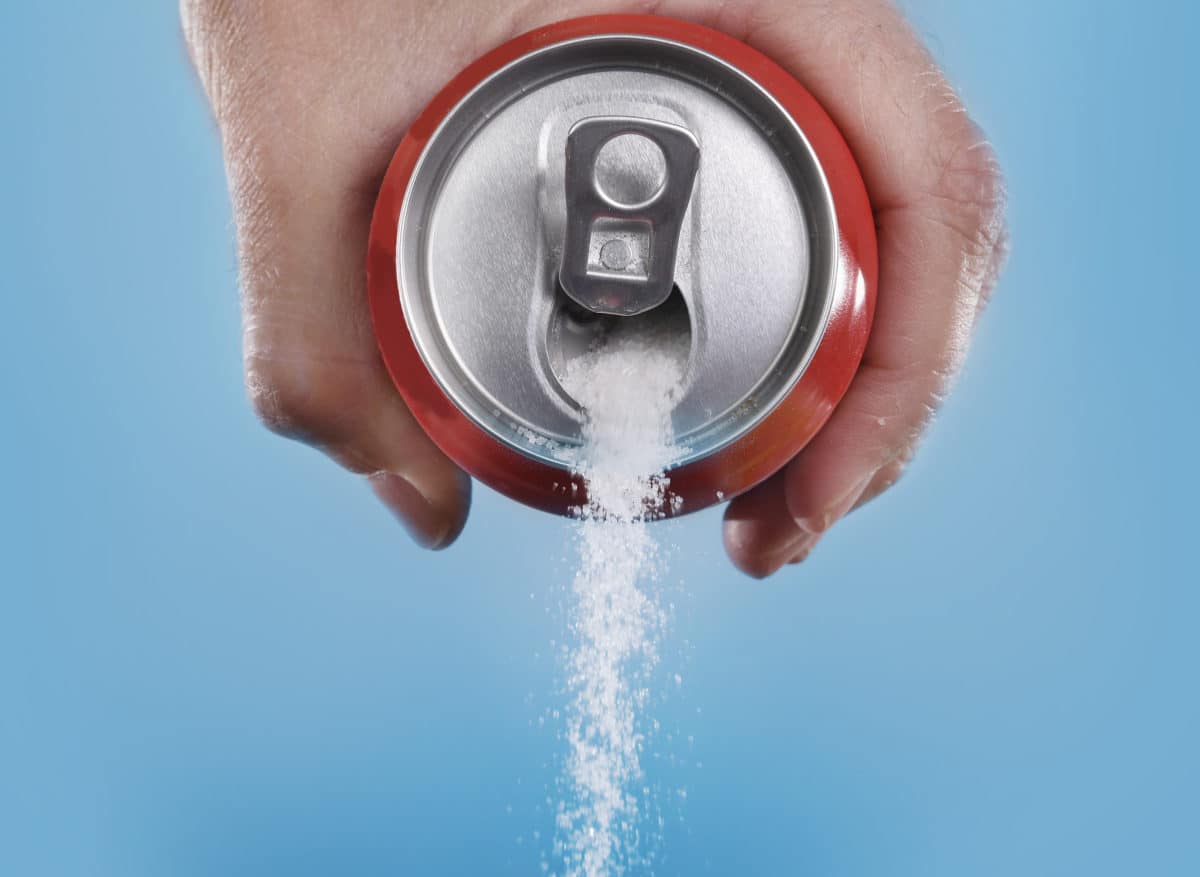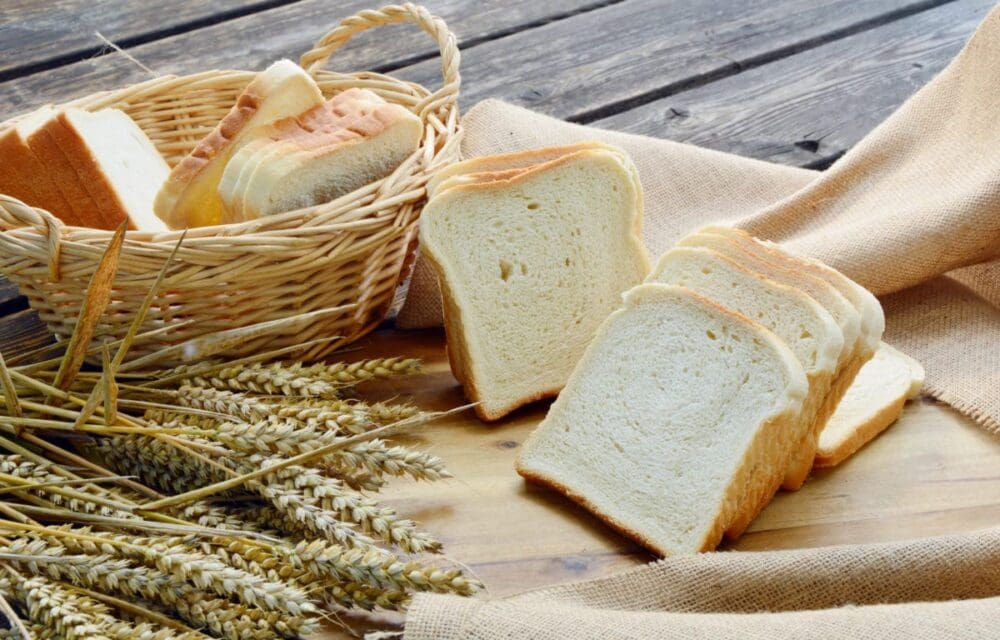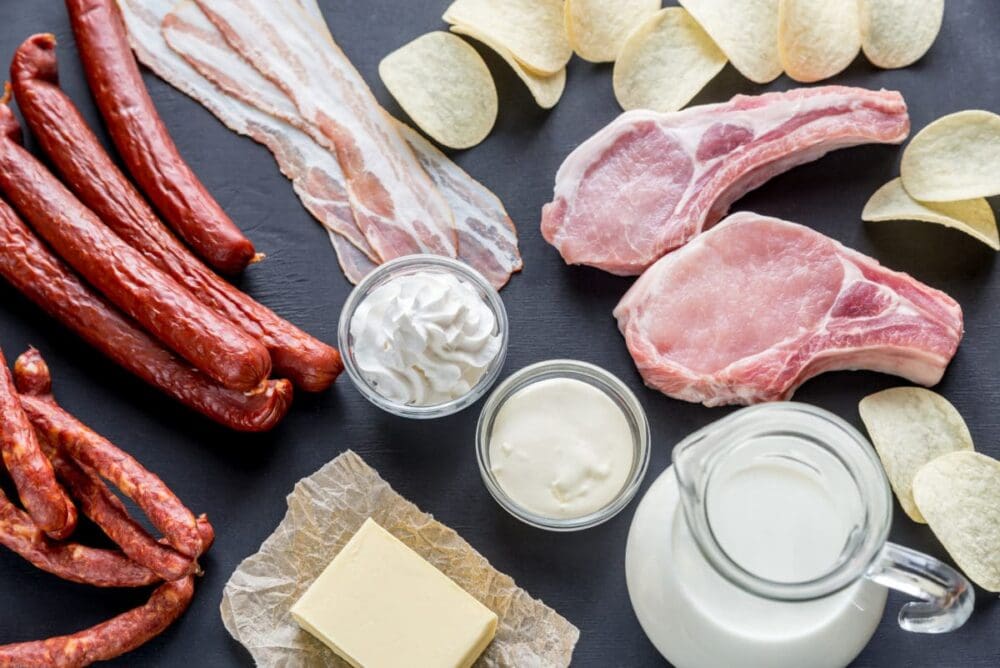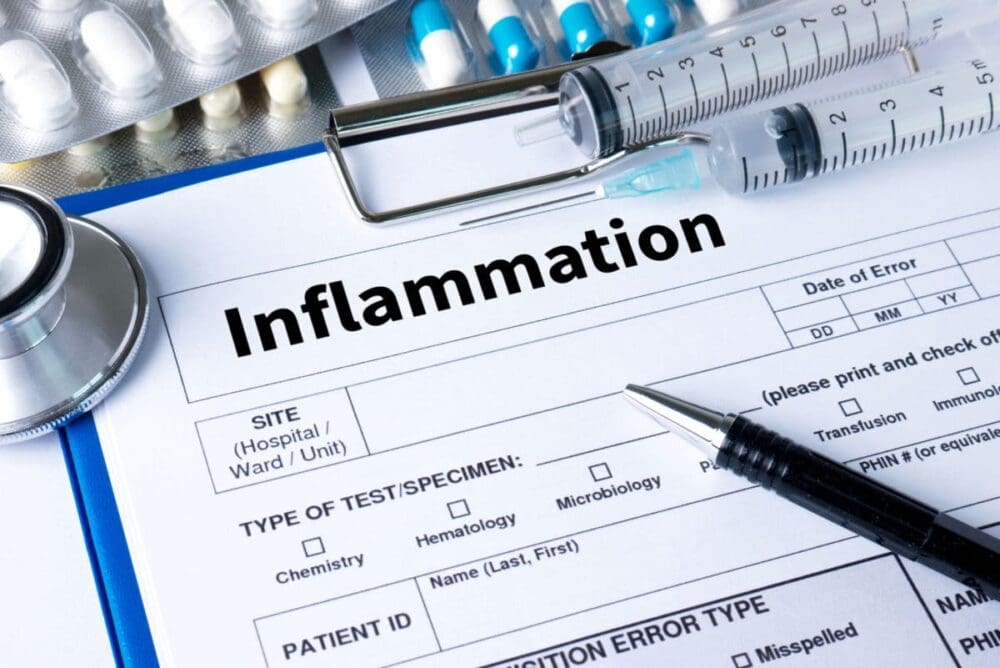Chronic inflammation can lead to long term health issues such as chronic pain, tissue damage, cancer, obesity, asthma, heart disease, rheumatoid arthritis, type 2 diabetes, and neurodegenerative diseases like Alzheimer’s disease. The connection between diet and health has been known for millennia. However, only recently have we started to understand the ways in which certain foods and dietary patterns can promote inflammation or fight against it. Let’s take a look at the top foods that cause inflammation so you can fight the informed fight for your health.
What is inflammation?
Acute inflammation is your body’s natural response to defend itself against elements that could cause it harm. Some of these include infections, injuries, and toxins. When you bump or cut your arm, antibodies and protein will rush to the area with blood to try and protect cells and tissue. But with an injury, this inflammation should only be temporary as the area heals.
Chronic inflammation occurs when your body maintains the state of alertness for longer periods of time – months or years rather than months or days.
What causes chronic inflammation?
Surprisingly, the role of chronic inflammation in chronic disease has only recently been understood, and there is still plenty we don’t know.
While many cases of chronic inflammation don’t have a clear underlying cause, there are certain lifestyle factors that can trigger or worsen chronic inflammation.
Some of the factors that may contribute to chronic inflammation include:
- Obesity
- Unbalanced or poor diet
- Chronic stress
- Alcohol consumption
- Smoking
Some health or occupational conditions can also cause chronic inflammation, including:
- Untreated infections or injuries
- Autoimmune disorders
- Long-term exposure to irritants, chemicals, or pollution
Your diet and inflammation
There are certain dietary elements that are likely to spark an inflammatory response. Below are 5 top foods that promote chronic inflammation – and that you should keep away from:
1. Trans fats and partially-hydrogenated oils


Trans fats are found naturally in some foods, but these aren’t the ones we are talking about here. The trans fats you need to avoid are those that are artificially produced in the lab through a process called hydrogenation. In short, hydrogenation is a chemical process in which the chemical composition of fats naturally found liquid at room temperature are made solid.
Artificial trans fats should be avoided if you want to prevent or reduce chronic inflammation. Not only to trans fats cause inflammation, they also increase disease risk.
Even though trans fats should be eliminated from foods, there are still some foods that have trans fats. They may even be in quantities that don’t require companies to report them in the nutritional label. You can tell if a food has trans fats (even if it says 0g on the nutritional facts label) if the ingredient list contains hydrogenated or partially-hydrogenated vegetable oil.
2. Sugar and high fructose corn syrup


This is a tough one to follow if you have a sweet tooth. But facts are facts. Sugar and sugar alternatives like high fructose corn syrup have a significant impact on inflammation, and that inflammation can lead to disease. One of the most consumed products that contain sugar or high-fructose corn syrup is soda. People who regularly drink these sugary drinks can have increased levels of uric acid. In turn, this can increase inflammation and insulin resistance.
3. Refined carbohydrates


Unless you follow a special diet, most of your calories more than likely come from carbohydrates. This isn’t a problem as long your carb intake prioritizes unrefined (complex) carbs.
Carbohydrates that contribute to your overall health include grasses, roots, fruits and whole grains. These are whole foods and complex carbs, meaning they are nutrient dense and likely high in fiber.
On the other hand, refined carbohydrates have undergone significant processing. Most of their fiber has been removed. Vitamins and minerals that your body needs has as well. Too many foods with these carbohydrates can cause inflammation.
4. Meat and dairy


While these foods are traditionally popular across many cultures, eating a plant-based diet has gained traction over the last several years as more people see its short term and long term health benefits.
Processed meat (and processed foods in general) that are cooked at high temperatures are high in a component called advanced glycation end products (AGEs). AGEs are known to cause inflammation and even colon cancer. This includes sausages, lunch meat, hot dogs, bacon, ham and beef jerky.
Dairy is also a direct source of saturated fat. A diet high is saturated fat is well-known to lead to inflammation. In the United States, the top sources of saturated fat are:
- Pizza and cheese
- Whole and reduced fat milk, butter and dairy desserts
Those products are followed by:
- Meat products (sausage, bacon, beef, hamburgers)
- Cookies and other grain-based desserts
- A variety of mixed fast food dishes
It’s clear that the more meat and dairy you consume, the more inflammation you are likely to create.
5. Alcohol


Drinking too much alcohol can cause serious issues. Drinking excessive amounts of alcohol on a regular basis can increase the inflammatory marker called c-reactive protein (CRP). This is especially important to remember if you suffer from gout. Beer, distilled liquor and wine can cause inflammation, making life much more challenging for you if already suffer from gout or other joint health concerns.
However, moderate alcohol consumption “reduces biomarkers of inflammation, including c-reactive protein, interleukin-6, and TNF-alpha receptor 2.” As part of anti inflammatory diet, alcohol may lower cardiovascular disease risk. It’s important to remember the keyword though: moderation.
What can you do to reduce inflammation?
Focus on healthy foods that are nutrient dense and unprocessed. Incorporating more anti inflammatory foods like fresh fruits and vegetables into your diet is a great start. And don’t worry about that old myth: you won’t be lacking in protein. Plenty of plant-based options can provide you with the protein you need.
If you need to use oil for cooking, try extra virgin olive oil or coconut oil instead of partially hydrogenated oils. You can also talk with your health care team about your diet, cooking more healthy options at home and other steps you can take to reduce foods that cause inflammation.
The bottom line
There are several lifestyle and health factors that can contribute to chronic inflammation. Chronic inflammation can be the beginning of a vicious cycle. It can increase your risk of a range of chronic conditions such as insulin resistance and cancer.
These diseases, in turn, can lead to greater chronic inflammation. It is also crucial to your quality of life that you schedule regular check-ups, complete prescribed treatments, exercise regularly and ensure an overall balanced diet.
Try this anti inflammatory recipe for vegan mac and cheese:
Which foods do you depend on to help you reduce inflammation?
Tell us in the comments below.
What topics related to inflammation would you like to see us explore?
Email us at info@painresource.com with your ideas!
Are you on Facebook?
Join our online community by clicking here.






I was in an accident years ago, and it result in a tear on my rotator cup never got the operation that they wanted to do, just started taking some pill to help with the pain, then I found this add about the 5 things that could with reducing the pain. Think that these 5 things could help me also, after about 20 years. I need some with this inflammation in my should. thank you.